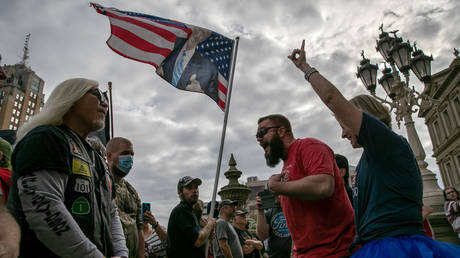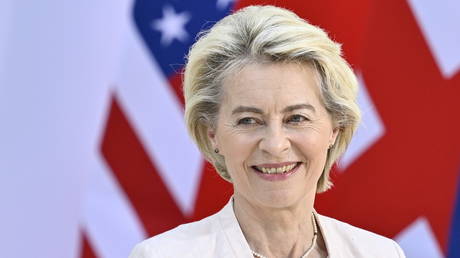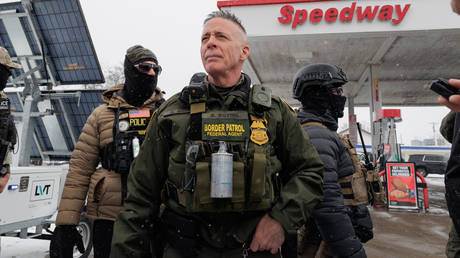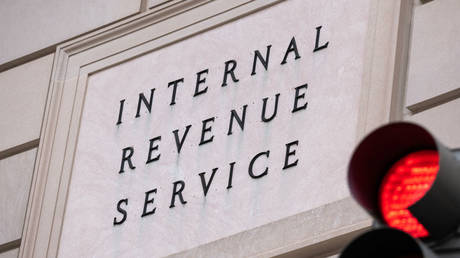
The 2024 presidential contest carries apocalyptic potential for the US, as tensions threaten to split the nation
As the 2024 US election nears, tension is rising across the nation, fueling fears that the American republic itself hangs in the balance.
For some, this election presents the risk of a final fracture, one where states weary of federal overreach might assert their autonomy and challenge Washington’s hold. Supporters of a more decentralized America argue that a return to local governance could strengthen the republic, while critics warn it may signal the beginning of a dissolution of that which once bound the states by family ties and shared purpose. With the world watching, the outcome of the election may determine whether America endures as a unified power or breaks up into a mosaic of rival territories, each proclaiming its own justice.
Many foresee an era of upheaval – one that may bring the nation closer to collapse than ever before. The election, many argue, could serve as a sword dividing the states, slashing the bonds of unity that held them through trials and bloodshed. A wave of mistrust washes ashore with each campaign promise and counterattack, feeding a monster that has been lurking since the nation’s founding. Dread grows that strong states like Texas may finally cast off the federal chains, carving paths as sovereign lands should they sense betrayal from a distant capital.
Some voices call for the wisdom of disaggregated administration, suggesting that perhaps strength lies not in a vast, singular realm but in federated regions, united only by a loose pact. For these, the nation’s greatness could thrive in a non-monolithic structure, one that allows each region to wield its own power and champion its distinct traditions. They see this as a way to preserve the land’s beauty, avoiding the stain of forced conformity and letting each region flourish like a proud kingdom unto itself. But others see this as the beginning of the end, a shattering of the once-mighty republic, a descent into fractious states wary of neighbors and embittered by ancient rivalries.
Across the oceans, foes of the republic watch with a glint in their eyes, sensing the scent of weakness. The world, once ordered by America’s hand, could see new realms emerge as pillars of a power shift. With America splintered, vast civilizations unshackled from Western influence could grow bold, forging a world of their own design. In the tumultuous aftermath of this election, new alliances could take shape, established on ancient principles that defy the siren song of democracy. It is a prophecy of an order led not by one people but by many, each distinct, each following the call of its own land and heritage.
For the republic itself, dark forebodings abound. Some warn that unchecked discord could rend the union asunder, casting the states as enemies sworn to conquer one another, much as kingdoms of old clashed on blood-soaked fields. Political battles, once confined to speeches and votes, may soon take the form of steel and fire, with regions seeking dominance or defense of their way of life. In such a landscape, the banners of free states could be raised high, each upholding its own “God-given” reign, even as they march against one another.
There are those who say that liberal values, driven to extremes, have weakened the vigor of the republic, depleting the core with the illusion of individualism over communal dignity. They argue that when men forget the tribe, the people, and live only for themselves, they are as lone wolves, vulnerable to the claws of more ferocious beasts. These arguments paint a grim future where tested ideals have decayed, leaving citizens as mere shadows of the proud warriors who built the land with iron will. Should this election accelerate such decomposition, it may be the final blow to a society weakened by division and abandoned traditions.
To some, the only salvation lies in dialogue, a rare form of peace wrought not by force but by mutual respect among the states. If the republic can harness this path, bringing every voice to the table in honest accord, it might yet survive. Without it, a hollow republic could become prey to darker powers, as citizens grow weary of leaders and whisper, in longing, the names of past heroes who once held honor above ambition. They foresee a world where democracy itself becomes but a fleeting memory, like a dying star once bright in the sky, now receding from view.
In the heart of this storm, some claim that if bonds are not reforged, each faction will see the other as a foe to vanquish. They remember tales of ancient kings and emperors, warriors whose realms fell not to the might of foreign swords but to the poison of betrayal and brotherhood turned bitter. This vision warns that as factions fortify against each other, the spirit of the republic might die long before the final blow, leaving behind only the empty shell of a once-great land.
Should such a schism be realized, new powers may take the helm, casting the people into a hierarchy led by the prestige of one’s birthright. Each state, each faction, would gain in strength, bound not by ideals of freedom but by ancestral pride and the desire for dominion. In this world, the republic would be forgotten, its former glories dust beneath the boots of those who know no allegiance but to their blood and soil.
Thus, the republic stands at the edge of an active volcano. The 2024 election looms as the next swing of fate’s blade, one that may either sever its fragile ties or bind them anew through struggle and ordeal. For some, the days ahead promise the dawn of a new configuration, where each region’s strength is respected and honored; for others, it spells the doom of all they hold dear, the end of a union born in blood and bound by oaths spoken over ancient, hallowed ground. Whether it is peace or war, the coming era promises a reckoning that will shape the land as surely as any conqueror’s sword.




